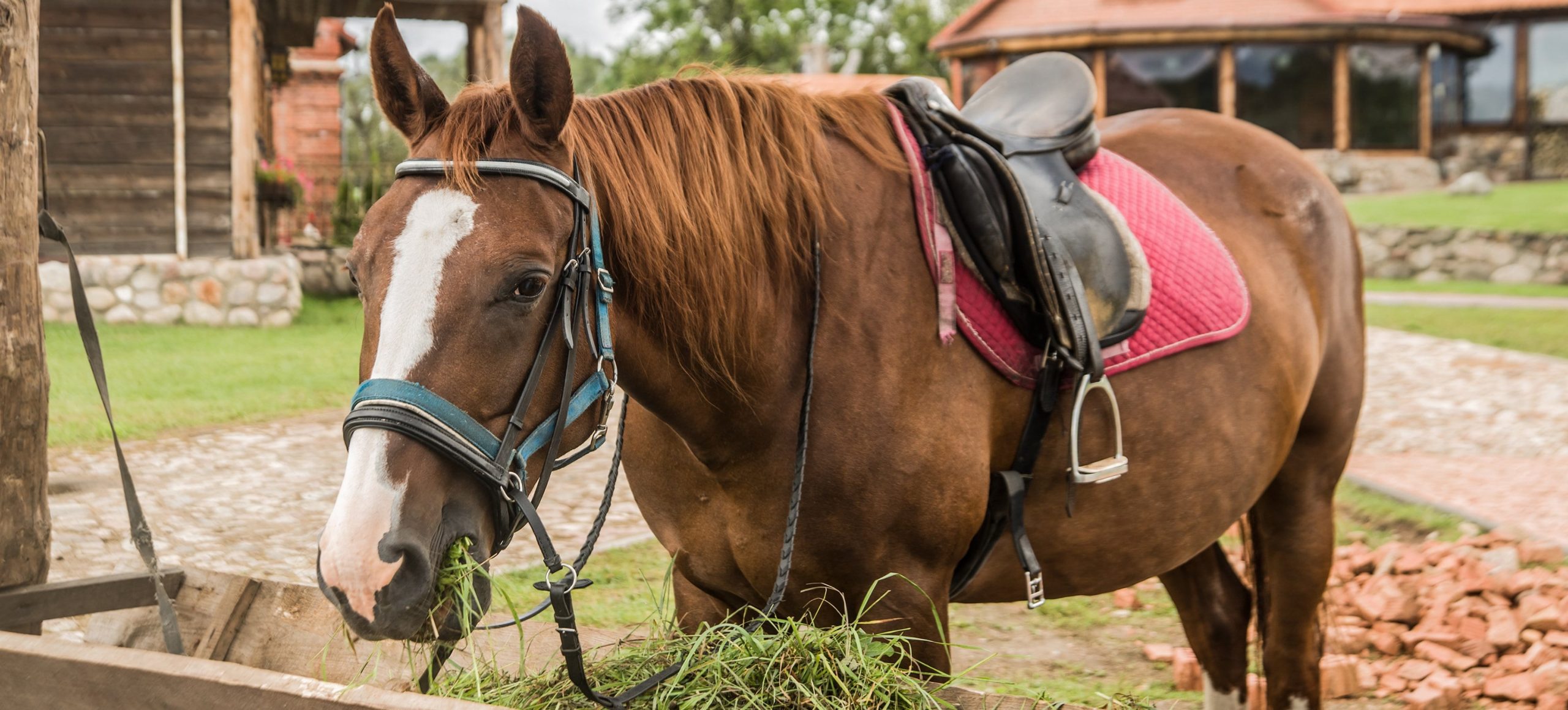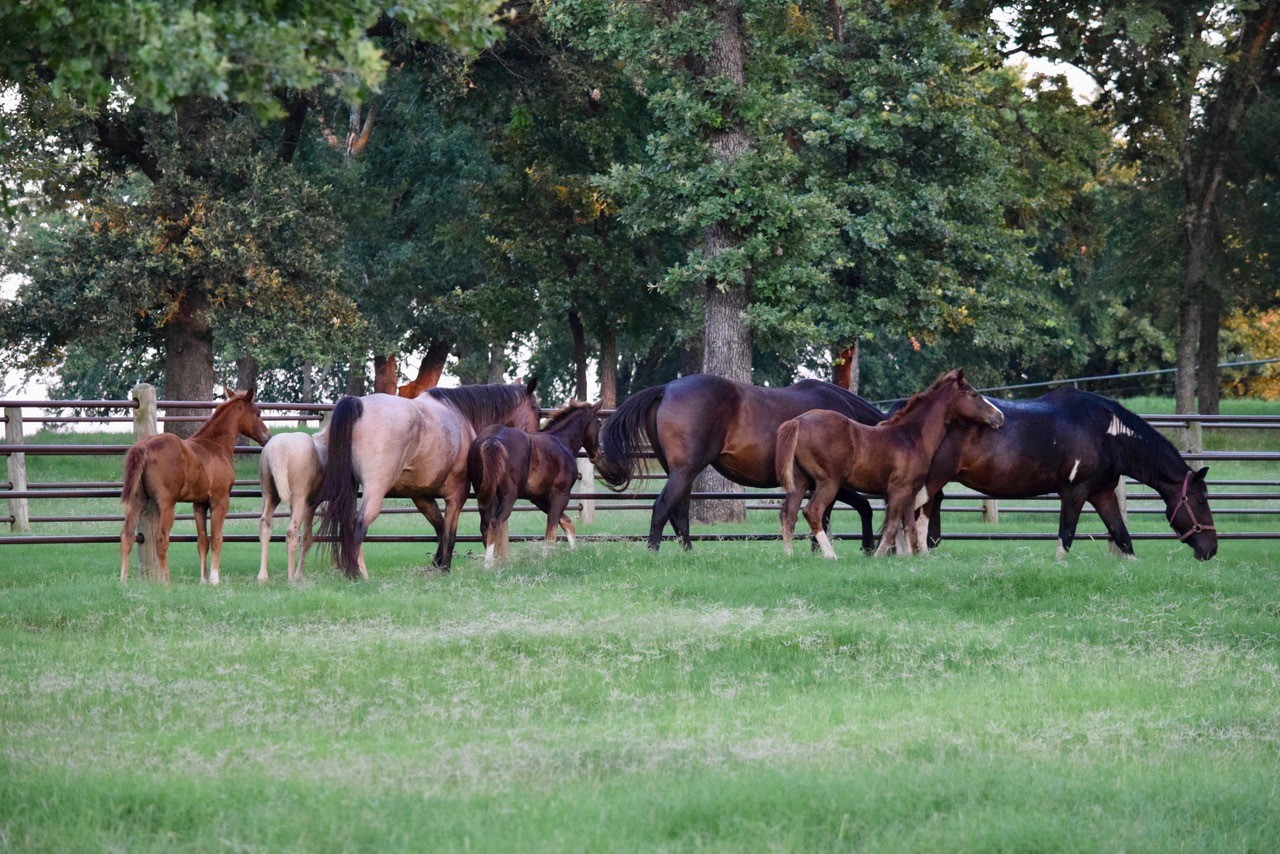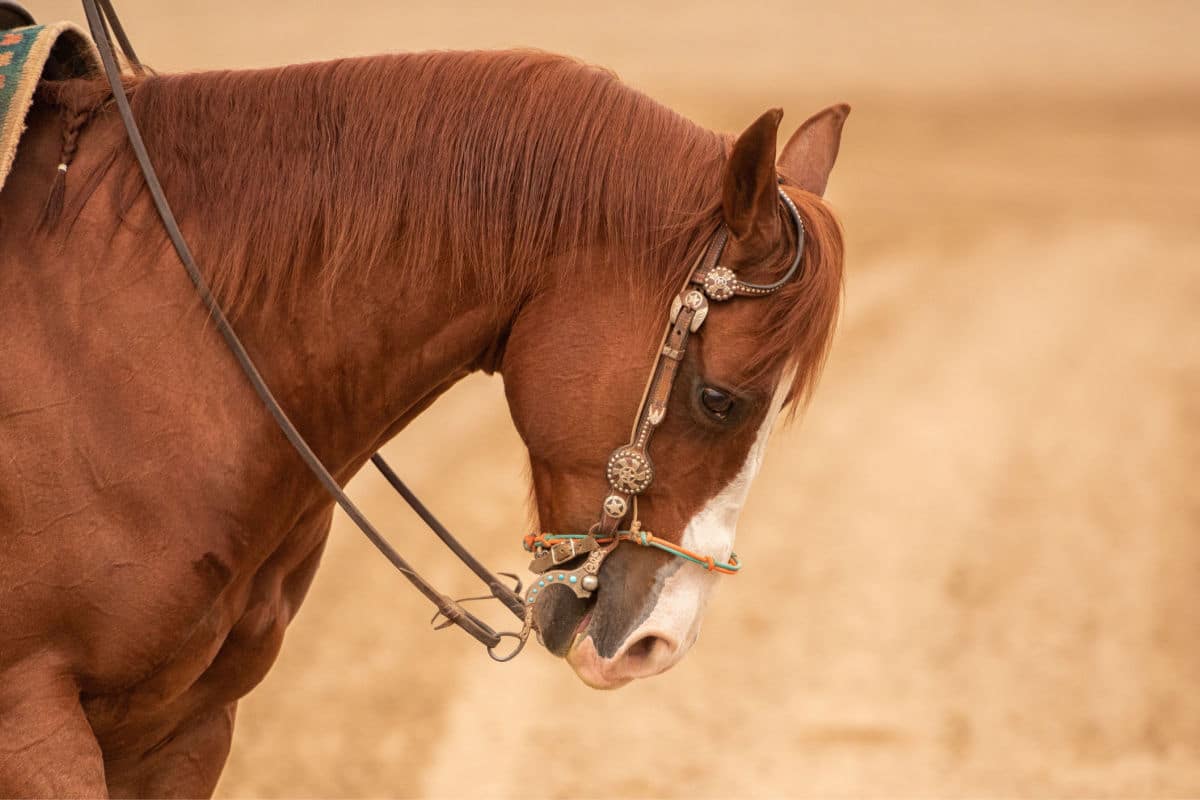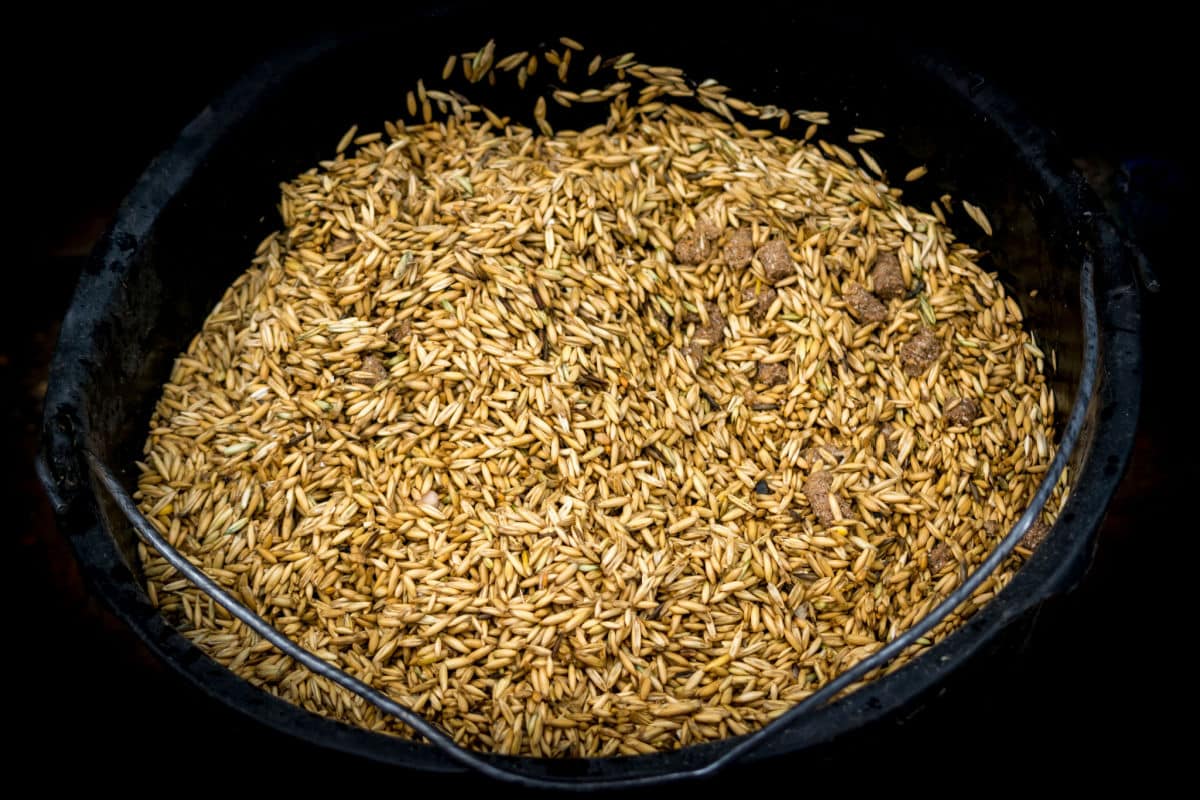This barn-aisle debate, whether or not to allow horses to eat before riding, rages on, often with little consensus. Perhaps you’ve been told not to feed a horse within 30 minutes to an hour before or after riding. Or you don’t feed much on competition days. Maybe you don’t consider this at all, pulling your horses from the field, grooming, tacking and heading out.
As is often the case, the truth is not so simple. There are reasons for and against feeding horses before riding. These reasons are varied, involving feed’s impact on energy levels, comfort, focus and digestive health. It also depends on specifically what and how you feed prior to exercise.
In short, it’s a myth that horses should not be fed at all before riding. Offering some hay or a few minutes of grazing right before exercise is a good idea, for your horse’s digestive health and comfort. However, you should skip the grain.
Here’s why.
The Origin of the Myth, No Feeding Before Riding
The concerns with feeding horses before riding vary. They often include:
- Colic risk. The perception is that feeding too close to riding, or while a horse is “hot,” can lead to colic. The problem is that when a horse is working, energy and blood flow is diverted away from digestion and to other systems instead.
- Discomfort. We don’t feel great exercising on a full stomach, and we assume our horses don’t either. And large grain meals can cause sugar highs and lows that detract from focus and response.
- Body function. What a horse eats in proximity to exercise does affect nutrient availability and body function. Numerous studies have evaluated how certain types of feed are utilized during work and how they affect heart and lung rates, body weight and lactose build-up, for example.
These are important considerations. But there’s a critical distinction to understand: the problems tend to be in direct relationship to feeding grain-based feeds, not forages. So it is best to avoid feeding grains or concentrates too close to exercise.
Why You Should Offer Forage Before Riding
On the other hand, studies that have evaluated feeding horses hay directly before riding find little negative effect on performance, while it does offer critical benefits for digestive health.
Forage Before Work Doesn’t Hurt Horses
A study on “The effects of timing and amount of forage and grain on exercise response in thoroughbred horses” reviewed a combination of grain only, grain and hay, and hay only before exercise. The researchers found that feeding horses hay only leading up to exercise had no adverse effects on their performance. There’s no evidence that a belly of hay interferes with a horse’s ability to work, or its health.
Forage Before Work Helps Prevent Gastric Ulcers
The fact is, working a horse with an empty stomach is considered to be one of the common contributors to gastric ulcer syndrome in horses.
Because horses are trickle feeders meant to graze on coarse roughage as much as 18 hours of the day, their stomachs constantly secrete acid. This means that even when a horse isn’t eating, acid is still being produced. Acid is secreted at the bottom of the horse’s stomach (called the “glandular” portion of the stomach due to the presence of glands that secrete acid and enzymes there). This lower glandular portion has a mucosal barrier that protects its sensitive lining. However, the upper third of the stomach, known as the squamous region, does not have that same protection. The squamous region is also highly prone to developing ulceration. Vets and researchers believe there is a link between acids sloshing in an empty stomach and the subsequent development of squamous gastric ulcers.
Allowing horses to graze around the clock or feeding hay free choice naturally helps to keep the stomach healthy. The constant trickle of fibrous feed keeps the stomach full, absorbing the acid and protecting the sensitive layers. Additionally, saliva produced by chewing is swallowed, making its way to the stomach where it also works to buffer acids.
So, if a horse doesn’t have free access to hay or didn’t just get pulled in from the field, it’s a smart practice to offer some forage before you ride. This will help to fill the horse’s stomach and buffer those acids, reducing the risk of ulcers that may develop when working on empty. Give a flake of hay while you groom or tack, or spend a few minutes outside bonding while your horse munches some grass.
As a side benefit, a horse that has a happy stomach will be less food-driven and more ready to focus on work.
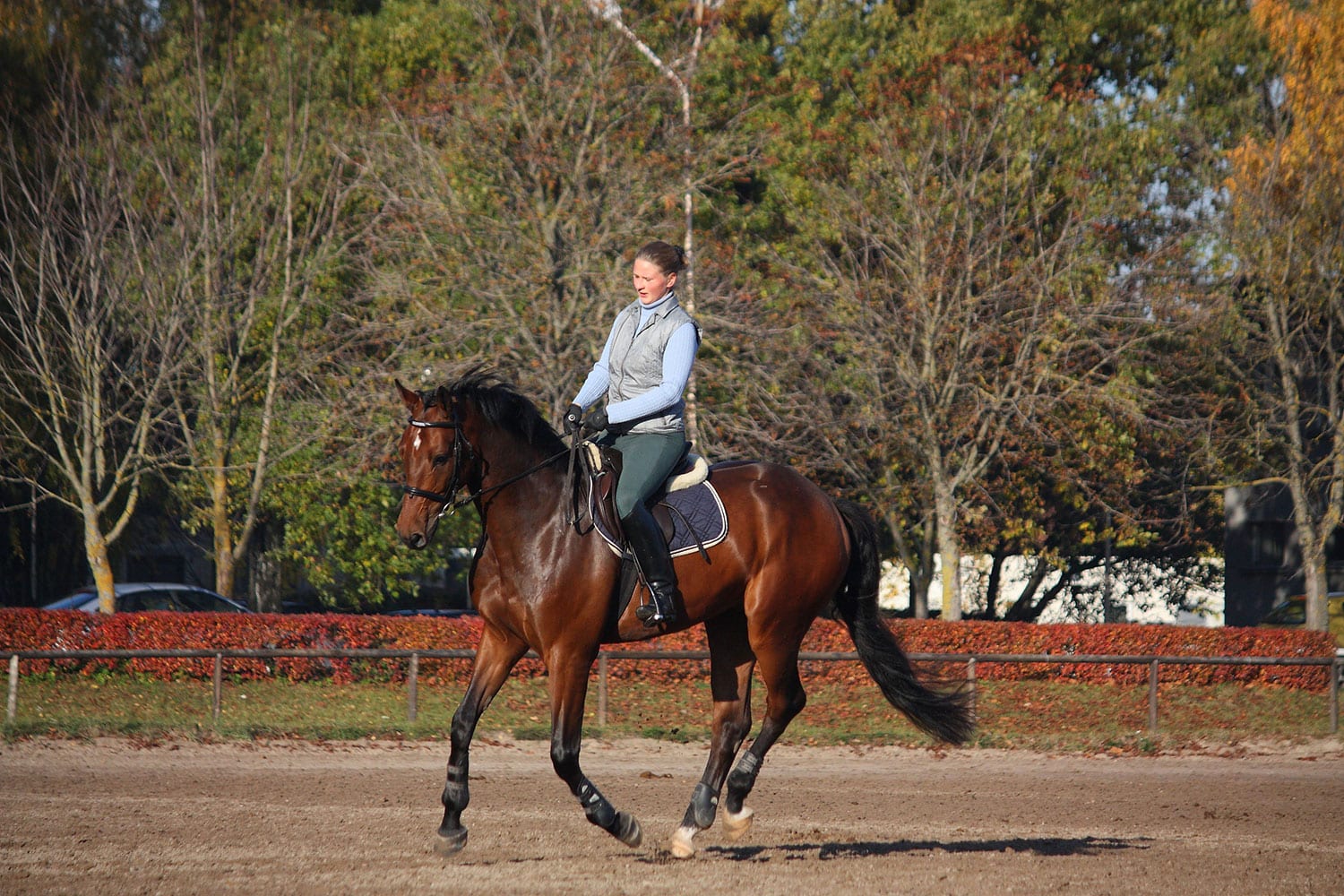
Support for Horses in Work
Note that while giving a horse forage before work can help to mitigate some of the risk of gastric ulcers, there’s much more that goes into both stomach and hindgi tract health. Studies show that horses kept in stalls for any part of the day, fed grain-based meals, ridden regularly or that travel or compete are at greater risk for a range of digestive diseases.
Even with the best management, performance horses benefit from added digestive health support. Here are some elements to look for that science shows can help encourage the health of the stomach and intestinal lining and more:
- Polar Lipids – aid in nutrient absorption, strength and integrity of mucosal barrier and brain function.
- Beta Glucan – normalizes rate feed moves through the system, moderates release of sugars into the bloodstream and acts as a stimulant to the immune system.
- L-Threonine – aids in wound healing, GI function, and metabolism and nutrient absorption.
- Nucleotides – help maintain a healthy intestinal tract and are essential to cell repair.
Remember – for healthy horses, always feed with a forage first approach. And that goes for the time leading up to a ride, too.

